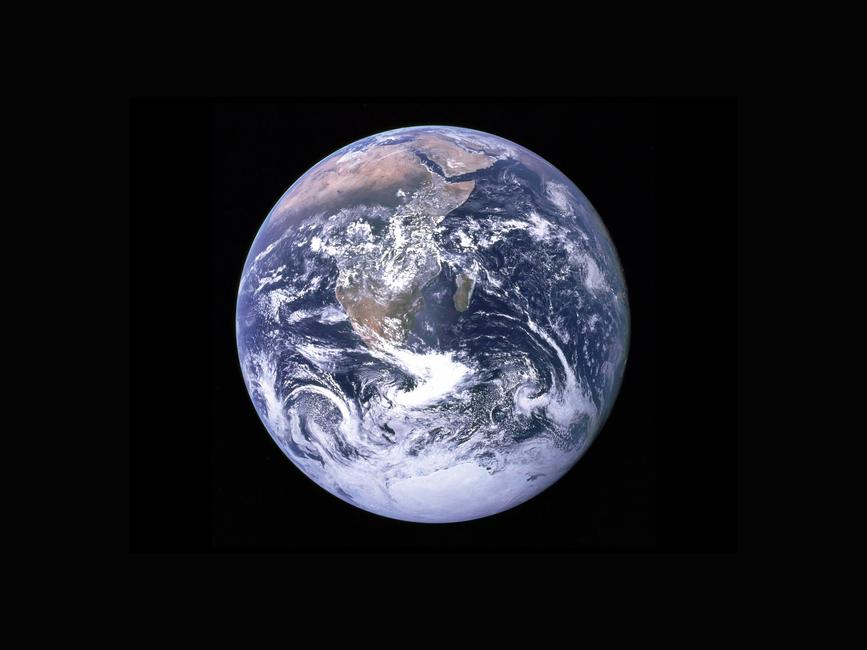NOVA’s “Ancient Earth”
I yesterday discovered a fascinating new NOVA science series, “Ancient Earth,” which presents scientists’ best understanding of our amazing planet’s 4.5 billion-year history.
Earth began as a molten, lifeless, hellscape with no atmosphere or oceans and evolved step-by-step over billions of years into the amazing live-rich planet we’re lucky enough to inhabit. This incredible story – which enabled your existence – is told by the scientists themselves and depicted visually with visits to rocks and fossils that informed our understanding of our planet’s evolution and with graphical recreations of ancient Earth.
NOVA presents a fascinating overview of our best scientific understanding of the geology, chemistry, and biology that produce today’s beautiful blue-and-green planet that sustains humanity.
UPDATE: This blog page used to point to the full NOVA videos, but NOVA has sadly removed the full videos from Youtube. The full list of episodes is here.
Ancient Earth: Birth of the Atmosphere
Ancient Earth: Humans Youtube doesn’t have even a snippet.
I love these episodes because I’m fascinated by the story they tell (and by glimpses into the scientific discoveries that led scientists to our current understanding of Earth’s evolution).
You might also enjoy this February 2020 NOVA episode:
Earth is unique. We must learn from its past to avoid destroying ourselves & millions of species with whom we share this precious planet
But these geological/chemical/biological history lessons frame humanity’s current climate crisis, informing us about how critical and changeable our atmosphere and ecosystems are and how existentially dangerous changing them rapidly is. Science knows that many feedback effects exist that can multiply our direct effects on the environment, leading to either a runaway greenhouse effect (think the age of the dinosaurs or modern Venus) or – conversely – a snowball Earth.
The spectacular James Webb Space Telescope (JWST) has imaged tremendous numbers of stars and planets, and cosmologists have been rushing to evaluate planetary spectral images to be the first to find the first signs of life beyond Earth. Despite the scientific gold rush, no one has yet found a single definitive gold nugget. So far, the most exciting candidate planet could well prove to be fools gold:
Did JWST find a MARKER OF LIFE in an exoplanet atmosphere? - Dr. Becky
Earth is precious because it’s the only planet that can sustain life on Earth. (We might somehow manage to spread to Mars, but not for hundreds of years in any large numbers. Mars today is an absolutely miserable, deadly place today.) Earth is doubly precious because it’s the only planet that we know sustains life, especially diverse, complex life like human beings and dolphins.
Why Can’t We Stop Poisoning Our Atmosphere?
Scientists have warned for many decades that humanity is hurtling toward ecological disaster. We have listened to their warnings and either ridiculed them or ignored them. We have NOT changed our ways. We continue hurtling toward disaster, faster than ever. And the evidence that has accumulated in recent years has outstripped most scientists’ worst fears. Those who know the science best are freaking out the most. The rest of us are blissfully ignorant & naively/foolishly optimistic.
If you want a primer on human inaction in the face of a self-created existential threat, Frontline has you covered in this three-part series:
The Power of Big Oil - Part 1: Denial
The Power of Big Oil - Part 2: Doubt
The Power of Big Oil - Part 3: Delay
Humans Continue Pushing Earth Toward a Catastrophic Planetary Environmental Collapse
The insanely fast and historically unprecedented pace of human-caused climate change means species and ecosystems won’t be able to adapt fast enough. And every species lost and every ecosystem disrupted puts even greater pressure on species and ecosystems that have relied on that newly lost species or ecosystem. So, as humanity yanks more and more threads from our interconnected global biological and ecological tapestry, that beautiful tapestry is losing its majesty and will eventually fall completely apart.
Climate Change: Averting Catastrophe (DW Documentary)
Living in the Future’s Past (Jeff Bridges) - superb, aside from background noise sometimes making it hard to understand what’s being said
Living in the Time of Dying (Michael Shaw)
